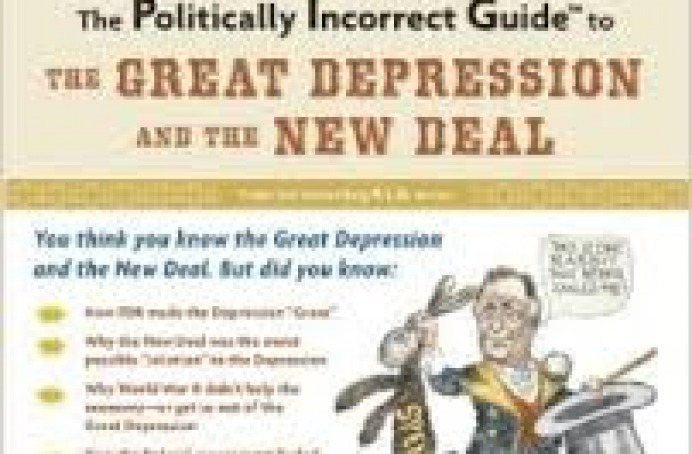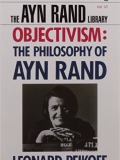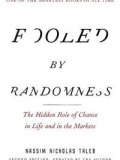Book

The Politically Incorrect Guide To The Great Depression And The New Deal
In this timely new P.I. Guide, Murphy reveals the stark truth: free market failure didn't cause the Great Depression and the New Deal didn't cure it. Shattering myths and politically correct lies, he tells why World War II didn't help the economy or get us out of the Great Depression; why it took FDR to make the Depression Great; and why Herbert Hoover was more like Obama and less like Bush than the liberal media would have you believe. Free-market believers and capitalists everywhere should have this on their bookshelf and in their briefcases.
aboutLiberty Portal
Liberty Portal is your gateway for free markets and free thinking. We aggregate open-sourced content to promote and popularize important people and lessons within the liberty movement.
suggested
Leonard Peikoff
Objectivism: The Philosophy of Ayn Rand

THE 25TH ANNIVERSARY EDITION—The definitive statement of Ayn Rand’s philosophy as interpreted by her best student and chosen heir.
This brilliantly conceived and organized book is Dr. Leonard Peikoff’s classic text on the abstract principles and practical applications of Objectivism, based on his lecture series “The Philosophy of Objectivism.” Ayn Rand said of these lectures: “Until or unless I write a comprehensive treatise on my philosophy, Dr. Peikoff’s course is the only authorized presentation of the entire theoretical structure of Objectivism—that is, the only one that I know of my knowledge to be fully accurate.”
In Objectivism, Peikoff covers every philosophic topic that Rand regarded as important—from certainty to money, from logic to art, from measurement to sex. Drawn from Rand’s published works as well as in-depth conversations between her and Peikoff, these chapters illuminate Objectivism—and its creator—with startling clarity. With Objectivism, the millions of readers who have been transformed by Atlas Shrugged and The Fountainhead will discover the full philosophical system underlying Ayn Rand’s work.
Read moreThis brilliantly conceived and organized book is Dr. Leonard Peikoff’s classic text on the abstract principles and practical applications of Objectivism, based on his lecture series “The Philosophy of Objectivism.” Ayn Rand said of these lectures: “Until or unless I write a comprehensive treatise on my philosophy, Dr. Peikoff’s course is the only authorized presentation of the entire theoretical structure of Objectivism—that is, the only one that I know of my knowledge to be fully accurate.”
In Objectivism, Peikoff covers every philosophic topic that Rand regarded as important—from certainty to money, from logic to art, from measurement to sex. Drawn from Rand’s published works as well as in-depth conversations between her and Peikoff, these chapters illuminate Objectivism—and its creator—with startling clarity. With Objectivism, the millions of readers who have been transformed by Atlas Shrugged and The Fountainhead will discover the full philosophical system underlying Ayn Rand’s work.
Nassim Nicholas Taleb
Fooled By Randomness

If you are not reading Nassim Taleb, you are living under a rock. This book improves your thinking and includes unique insights on Austrian Economics, John Maynard Keynes, and Milton Friedman.
Read more
Thomas Sowell
Discrimination and Disparities

Discrimination and Disparities clearly explains why disparate outcomes are not always explained by discrimination. This book should be required reading for voters and politicians.
Read more


